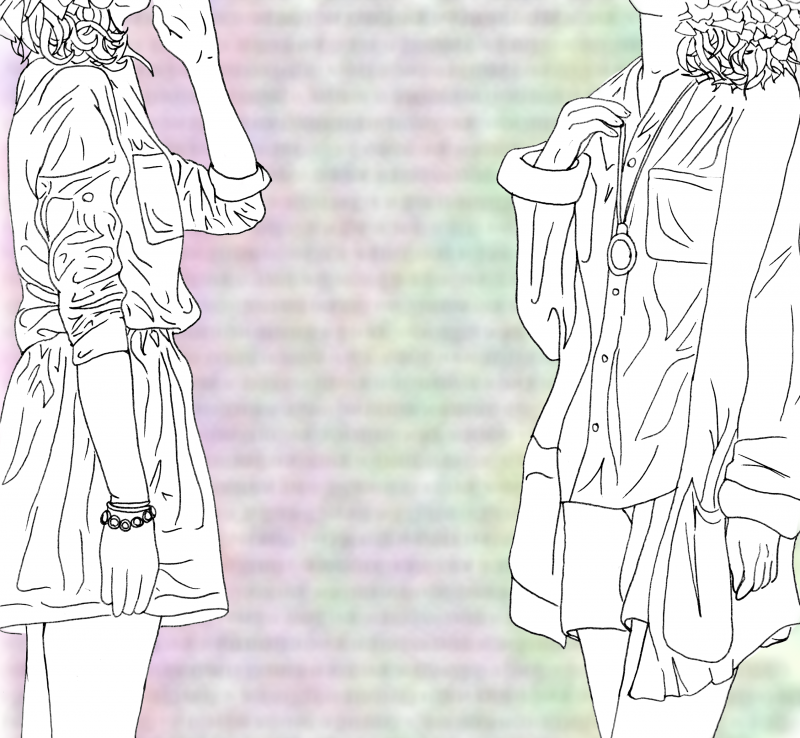I recently read an article about the term “whitewashed” and the weaponization of the word against Latinxs who are seen as having forgotten their roots by their Latinx friends or family members. The article explained the author’s personal interactions with being called whitewashed, and the problematic nature of assuming someone was less connected to their real culture, implying they are “fake” Latinx. As someone of half Mexican descent, I could identify with the author’s experiences and I was glad to see someone pointing out the potentially harmful effects of a term commonly used by Latinxs against other Latinxs. However, as I scrolled down to the comments on the article, I was dismayed to see a number of people dismissing her argument as another example of “PC culture” run rampant.
“Quit attempting to fit a fickle world … into a nice pretty box for your ‘feel better’ PC convenience,” said one user. “Keep it real; ignore this ‘safe spaces’ mindset and grow thick skin,” said another. As I continued to read more comments reinforcing the same arguments, I was surprised at how easily the commenters had disregarded the author’s experiences and jumped to calling her an oversensitive crybaby. This led me to investigate the many reasons why people feel the need to attack the idea of being “politically correct.” Many see political correctness as a method of censorship, essentially putting certain words on a blacklist that are forbidden from being spoken aloud. The other main argument is the one I witnessed in the comments: That PC culture is turning young people into thin-skinned, closed-minded infants. However, this approach to the concept of political correctness fails to account for the goal of the PC movement: A state of broader awareness of our words’ impact on other people.
While it may seem that PC culture is a form a censorship, it is more than rules on what you can and cannot say. In reality, making an effort to be PC is a way to maintain consciousness of the real or interpreted consequences that certain phrases have. In fact, rather than closing our minds off to other points of view, political correctness forces us to put ourselves in the shoes of those receiving our message. By staying aware of the types of language we use when referencing certain people or topics, we promote empathy with those who offer life experiences that are different from our own. In this way, PC culture promotes the exploration of new ideas rather than stifling them.
Alli Roman, director for diversity and inclusion, takes issue with the idea that those who speak out about their oppression or marginalization are weaker.
“To experience oppression in various forms and to still somehow make it through their daily lives takes an incredible amount of strength,” Roman said. “The expectation that people from marginalized communities should be silent about their treatment is just wrong. Everyone deserves to be treated with respect, dignity, and empathy.”
However, Roman also believes that the term “politically correct” may not have the same place in society that it used to.
“I think that word shouldn’t be used anymore. When marginalized communities speak out about their experiences and challenge the stereotypes and narratives created about them, they can get labeled as ‘too’ politically correct. The term political correctness aims to discredit and to demonize the very important work around social justice issues,” Roman said.
By this reasoning, the connotations behind being “politically correct” might be undermining its very purpose, shifting the focus away from the experiences of those peoples who are oppressed.
Being PC is not about censoring the opinions of your political opponents and trying to catch people using the wrong terms in order to discredit them. We are all sometimes unaware of the harmful effects of our words, and it is simply a matter of educating each other and maintaining awareness of those experiences with we have never encountered. “It doesn’t mean we shouldn’t be able to speak freely about issues,” Roman explained. “It does mean if someone says something offensive, hurtful, and is rooted in the oppression of others, we have the duty to call them out, call them in, and to hold them accountable.” Through this accountability, we can hope to promote a more empathetic society, one that evaluates our interpersonal impacts rather than demand that others toughen up and deal with them.






